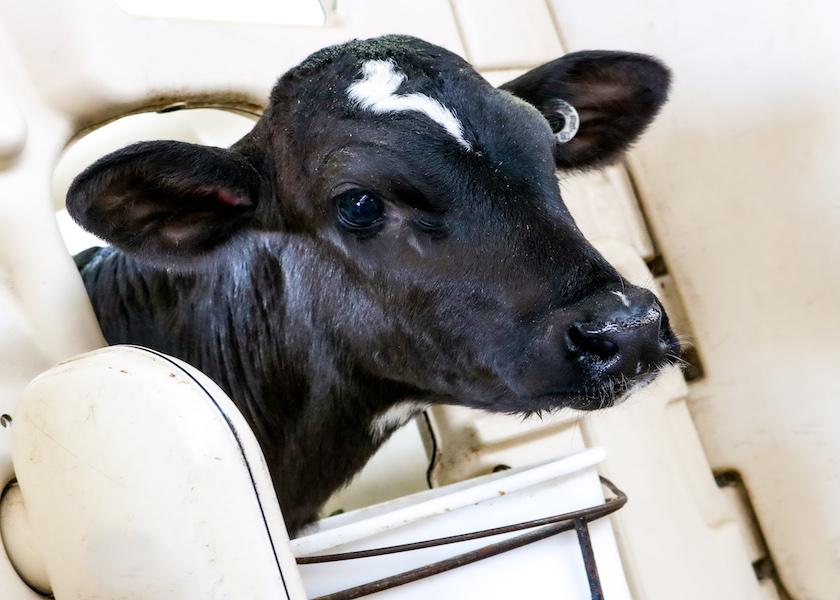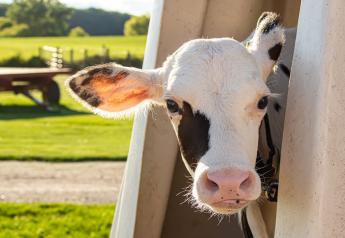Slug-feeding Starter May Create Bad Habits for Life

Learned behavior in calfhood could have possible long-term effects on how adult cows eat and process nutrients.
Animal behavior research at the University of British Columbia has shown that behaviors learned by young calves can be retained all the way to adulthood. When it comes to feed consumption, how calves are fed starter grain may be predictive of their eating behavior as lactating cows.
In an effort to keep calf starter fresh and minimize waste, many producers feed it in small quantities, especially when calves are first introduced to it. But there’s a delicate dance between managing supply and creating eating behaviors that could be detrimental later in life.
In his “Calves with Sam” blog, the late New York calf and heifer specialist Sam Leadley advised that empty pails send a clear signal to calves: “Eat up! There may not be any more!”
If calves learn to eat this way early in life, their “slug feeding” behavior could be imprinted into adulthood. Trevor DeVries, professor and cattle behavior specialist at the University of Guelph, said mature cows eating fewer and larger meals – aka “slug feeding” -- poses several risks, including:
- Decline in rumen pH following meals, which is accelerated when meal size increases.
- Reduced saliva secretion through the course of the day, leading to decreased rumen buffering, further contributing to reduced rumen pH.
- Increased incidence of sub-acute ruminal acidosis (SARA) due to lower rumen pH.
- Greater incidence in lameness in the herd due to SARA.
- Sub-optimal fiber digestion due to the more acidic rumen environment, which deters the population of fibrolytic bacteria in the rumen.
- Depression of milkfat production.
- Increased incidence of displaced abomasum.
In addition to behaviors learned via starter grain delivery, DeVries said limit-feeding TMR to weaned heifers also can potentially contribute to slug-feeding behaviors.
Leadley’s advice for discouraging early development of slug-feeding behavior: don’t let grain pails or feeders go empty. His routine was to dump and refill grain pails twice a week to avoid spoilage, but keep starter grain – along with free-choice water -- in front of calves at all times.







